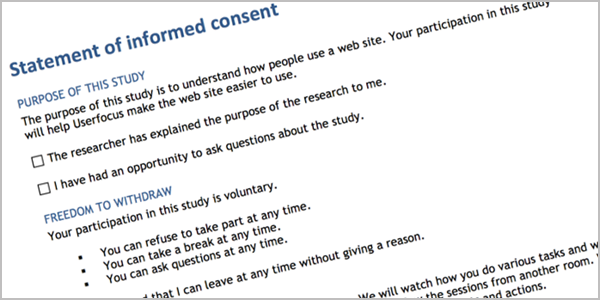
UX newsletter — October 2019

Email not displaying correctly? View it in your browser.
Message from the Editor
Exactly 30 years ago, I had to make an important decision. I was doing post-doctoral research at New York University and my contract was coming to an end. Did I want to pursue a career in academia or did I want to move to a research role in industry? I remember making lots of lists with the plusses and minuses of each decision and spending way too long coming to a conclusion.
A few months after taking the leap (to the Human Factors Division at BT Labs), I wondered what all the fuss had been about. It was obviously a good idea and one that I'm still pleased I made 30 years later. But the transition wasn't all plain sailing. I discovered that "research" in the worlds of academia and business are the same in title only.
This month, Philip Hodgson and I have written an article on transitioning from academic research to business research. Because user researchers are very much in demand these days, we're noticing other academics making the change or at least considering it. If that applies to you, I hope you find it useful.
— David Travis

Doing UX research in a university is very different to doing UX research in a business setting. If you're an academic making the leap, what are the main differences you need to keep in mind? Read the article in full: Transitioning from academic research to UX research.

Gaining informed consent is a cornerstone of the social sciences. But it is sometimes poorly practiced by user researchers. They fail to explain consent properly. They mix up the consent form with a non-disclosure agreement. And they mix up the consent form with the incentive. Improving the way you get consent will also improve the data you collect because participants can be more open and because it makes user researchers more empathic. Read the article in full: What user researchers ought to know about informed consent.
What we’re reading

Some interesting UX-related articles that got my attention over the last month:
Like these? Want more? View more posts on Twitter, Facebook and Instagram.
The UX Tea Break

Some videos I published on YouTube last month:
Like these? Want more? Subscribe to my YouTube channel.
Upcoming UX training courses
In this fun and hands-on training course, you'll practice all the key areas of UX — from interviewing your users through to prototyping and usability testing your designs — while you prepare for and take the BCS Foundation Certificate exam. View the full syllabus: Foundation Certificate in User Experience.
UX quotation of the month
"Simplicity is about subtracting the obvious and adding the meaningful." — John Maeda.
Did I mention I've published a book?
It's titled Think Like a UX Researcher. Grab your copy here.
Hungry for more?
Read previous newsletters.
Want to receive your own copy of this newsletter?
Join our community of people interested in user experience. Sent monthly. No spam.
|